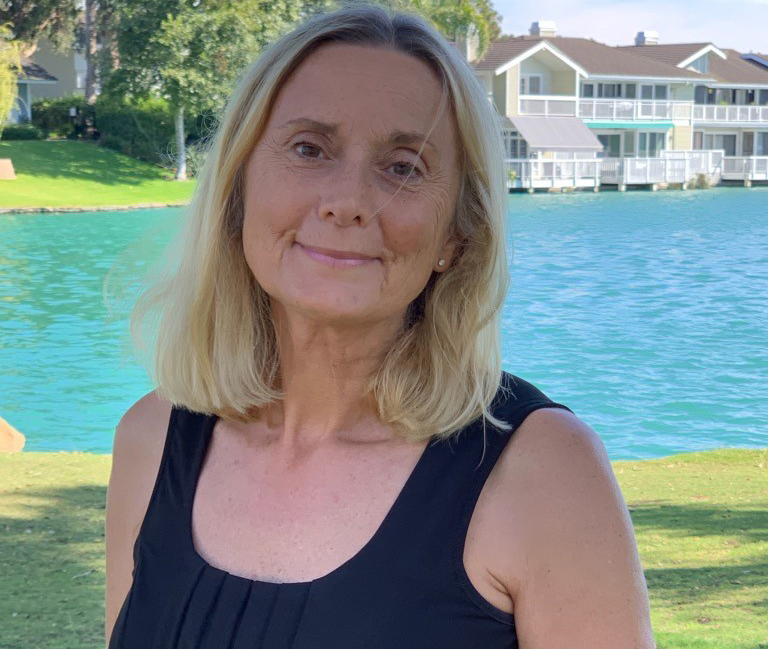
Rebecca Baker had to stop telling people about her brain tumor.
“Everyone was so worried, and I wasn’t at all,” she said. “I knew that they were going to be able to remove it successfully and I’d be fine. It was actually a relief knowing there was a solution”
Baker said the reason for her calm in the face of a complex brain surgery can be summed up in one word: Hoag.
Hoag is the only hospital in Orange County to invest in Surgical Theater’s Precision Virtual Reality medical visualization platform. Using 3D medical imaging and virtual reality technology, the platform allows neurosurgeons at the Pickup Family Neurosciences Institute and Hoag Family Cancer Institute to essentially “rehearse” cranial surgeries virtually before ever walking into the operating room.
This gives surgeons the distinct advantage of knowing ahead of time what complexities await during these delicate brain surgeries. The knowledge allows them to plan the safest and most effective approaches.
All of this gave Baker the peace of mind that had eluded her for months. Before her diagnosis, Baker starting saying words that she hadn’t meant to say such as “pickle,” instead of “chair,” for instance. Her speech got so bizarre that in January 2019, she went to the ER, thinking that she might be having a stroke.
The uncertainty was terrifying, but the diagnosis of a meningioma tumor was, by comparison, not. Baker did her research and learned that Hoag has the most sophisticated equipment available and one of the most renowned surgeons to treat her condition.
“I was so relieved that it wasn’t a stroke or dementia. It was something that could be fixed,” she said. “I found this video online about Dr. Louis and one about the surgical theater. It looked more fascinating than frightening.”
Robert Louis, M.D., program director for Hoag’s Skull Base and Pituitary Tumor Program and the Empower360 Endowed Chair in Skull Base and Minimally Invasive Surgery at Pickup Family Neurosciences Institute at Hoag, is among an elite few neurosurgeons in the country trained to use the technology. The 360 VR not only allows him to “fly through” the patient’s brain virtually before the surgery, the patient gets to take a “test-drive,” too.
Fitting Baker with Oculus Rift 3D virtual reality goggles, Dr. Louis was able to give his patient a “tour” of her brain and a visual preview of the surgery. Hoag’s culture of transparency with patients is unique among hospitals and makes a big difference in elevating patient confidence.
“It was at that point I saw how big the tumor was,” she said. “Part of me was relieved because he was able to see everything so precisely, but I wasn’t expecting to the tumor to be as large as it was with it attached to so much. Still, Dr. Louis was just amazing. I knew I could trust him, and I was ready to go in the next morning to have at least part of the tumor removed.”
When Baker awoke from her surgery, Louis was smiling. He had been able to remove 99% of the tumor, far more than Baker had been expecting.
While recovery takes time, Baker said her speech immediately returned to where it had been, and she returned to work three weeks later. She no longer felt the need to stay quiet about her brain surgery.
“I tell everyone now whenever possible: Hoag is where you go if anyone you know needs brain surgery,” she said. “They must go see Dr. Louis at Hoag for a second opinion. It is so important.”
Baker said that a neighbor’s sister recently underwent neurosurgery at a different hospital, and she was heartbroken to only learn about her surgery after the fact.
“She did not go to Hoag, and she is now walking with a cane, and her recovery has been slow,” she said. “I wish I had known. I would have told her Hoag is the only hospital in the area that has Surgical Theater.
“The technology helps a lot,” Baker said. “Every hospital in the nation needs this technology.”







